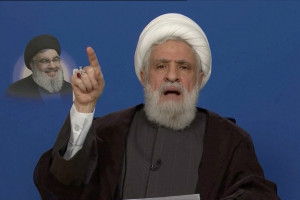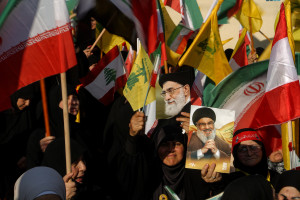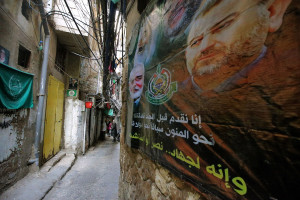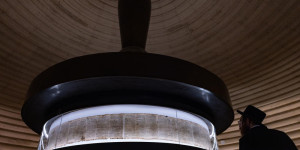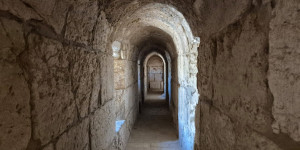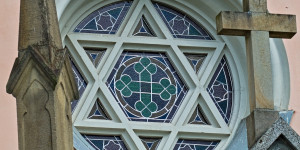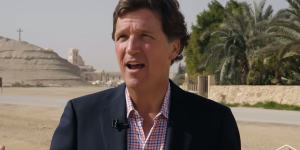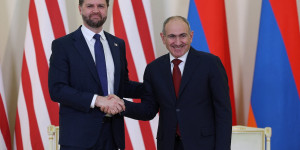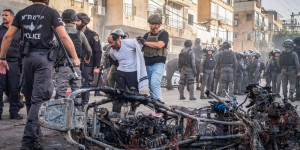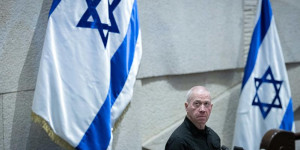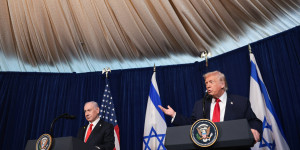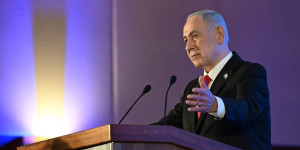US envoy to Lebanon praises country's response to proposal for dismantling Hezbollah, says opportunity exists for peace with Israel
'Lebanon risks being left behind' envoy Barrack says, 'Region is moving at Mach speed'
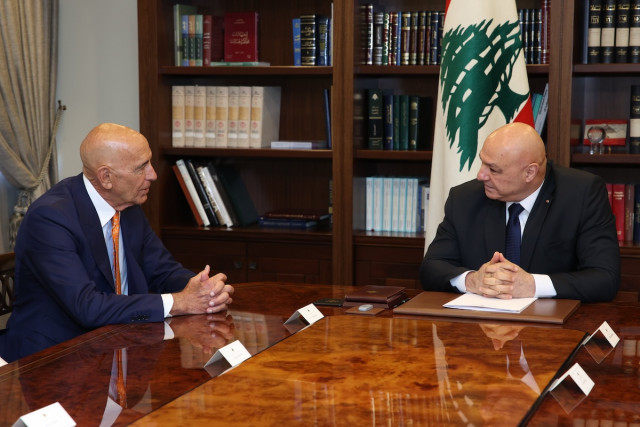
The U.S. envoy to Lebanon, Tom Barrack, praised the country’s response to a proposal by Washington that provided details for the disarming of the Hezbollah terror group in the country in exchange for the complete withdrawal of Israeli troops.
Following a meeting with Lebanese President Joseph Aoun, Barrack said, "What the government gave us was something spectacular in a very short period of time. I'm unbelievably satisfied with the response.”
The U.S. proposal was given to the Lebanese government on June 19 and called for a four month process to disarm the Iranian proxy. The Lebanese response to the U.S. proposal included seven pages detailing a plan for implementing the gradual disarmament of Hezbollah’s military wing.
Israel and Lebanon signed a ceasefire late last year, following a surprising set of attacks on key Hezbollah leaders and commanders, beginning with the pager operation which injured thousands of Hezbollah commanders.
That operation was followed by several precise strikes on Hezbollah munitions depots, missile launchers, and weapons manufacturing sites. It escalated even further following the elimination of Hezbollah Secretary General Sheikh Hassan Nasrallah in September 2024, and culminated with the entry of Israeli troops into southern Lebanon to dismantle Hezbollah sites used to plan or carry out attacks against Israel.
While Israel agreed to the ceasefire with Lebanon, and not directly with Hezbollah, the terms of the ceasefire include a requirement for the Lebanese government to begin the process of disarming Hezbollah.
Israel has continued to carry out airstrikes against Hezbollah targets throughout Lebanon, as allowed by the ceasefire, if the Lebanese government fails to act in a timely manner to threats caused by the Shia terror group.
While Hezbollah initially indicated its agreement to the terms of the ceasefire deal, the group appears to be attempting to rehabilitate itself in southern Lebanon, contrary to the terms of the deal. As a result, Israel has refrained from withdrawing its troops from southern Lebanon, arguing their presence is necessary to counter the threat of Hezbollah attacks against its northern border communities. Those communities saw thousands of rocket and drone attacks during the Iron Swords War.
Tom Barrack also told Lebanon that both countries have the same desire for peace.
“The Israelis do not want war with Lebanon,” Barrack said. “Both countries are trying to give the same thing – the notion of a stand-down agreement, of the cessation of hostilities, and a road to peace.”
Barrack also said the U.S. proposal is not an attempt to impose its will on Lebanon.
“What we’re doing is saying, ‘You want change, you change it and we’ll be there to support you. If you don’t want change, it’s no problem,’” Barrack said in a statement after his meeting with government leaders.
However, he warned that Lebanon risks being left behind.
“The rest of the region is moving at Mach speed,” he stated, “and you will be left behind.”
In the meantime, Israel continues to carry out strikes against Hezbollah targets. On Sunday night, the IDF struck several Hezbollah military sites, including strategic weapons production and storage sites, and a rocket launching site in the area of the Beqaa Valley and in southern Lebanon.
“The presence of weapons and Hezbollah activities in the area constitute blatant violations of the understandings between Israel and Lebanon,” the IDF stated. “The IDF will continue to operate to remove any threat to the State of Israel.”

The All Israel News Staff is a team of journalists in Israel.
You might also like to read this:


